Achille Massoma is the CEO and Co-Founder of Ibariki Media, a multi-dimensional digital lab producing video games designed to revolutionize the global gaming industry, while creating impact for social justice advocacy groups. Massoma’s life-long exposure to many communities of the African Diaspora has guided his principles and fueled his passion for educational equity. Massoma’s work is centered around Social Entrepreneurship, a philosophy and strategy integrating social change, empowerment, and economic growth. By creating a new class of digital games, which combine entertainment with civic duty, these games, tutorials and exhibits creatively incorporate culture representation, environmental, and social justice within the gaming experience.
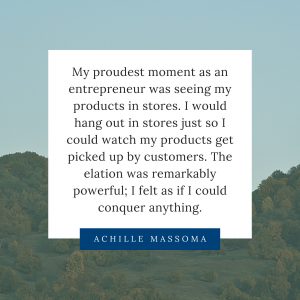 What does “entrepreneurship” mean to you?
What does “entrepreneurship” mean to you?
AM: Entrepreneurship is multidimensional. It is a blend of practical skills, creativity, imagination, and a healthy dose of risk taking or naïveté. At its core, it is the capacity to identify opportunities and find viable solutions for specific needs. It also requires the capacity to articulate the proposed solution and then develop and organize the resources and processes needed to produce the product or service while communicating the value.
In my mind, entrepreneurship and social responsibility go hand-in-hand. Social entrepreneurship reconciles profit-making with social responsibility in a way that puts the community at the center of all considerations. Social Enterprises hold on to profit, while simultaneously working to maintain the well-being of the stakeholders. Social Enterprises are established to maximize the collective benefit while making a profit.
How did your company come to be?
AM: My current company Ibariki Media came to be out of a reaction to multiple conversations I had and continue to have with my daughter. It started when she was about 3 years old. Often, after I picked her up from school, we would talk about her day and mine. We also talked about what she was learning. My daughter would ask me questions about Africa and more specifically my home country, Cameroon. For example, she would ask me if people in Africa wore shoes. When I said yes, to my surprise, she would always be very skeptical. I realized then that my answers were not aligned with what she was learning about her heritage.
I understood then that a whole generation of kids and, most importantly, black kids, were growing up with the misconstrued idea about Africa’s history and culture. I first had the idea to build and educational trivia game. As I began my research to build the game, I realized that not only there was a real need for products which focused on Africa and the diaspora, but the market was substantial and growing fast. I also realized the vast potential of digital media in relation to the creative economy.
How has your business changed in response to the COVID-19 pandemic?
AM: Early this year, we had clear plans for the direction we were taking as a company; our focus would be to develop new games and build a community around them. We were also clear about how much capital we would need to raise. We had been working diligently toward achieving our objectives when the pandemic stroke. Simultaneously, we were developing an action plan toward our long-term goal of creating games which would play a bigger role in society, addressing pressing socio, environmental and racial issues.
In the event of Covid-19, we realize that the need for socially relevant games was more urgent than we anticipated. We had to pivot our development plans and make the creation of socially relevant video games a priority. We are now in the process of making a video game in response to Covid-19. We are teaming up with several local non-profits to build “Clean Steak”, a video game which is designed to bring families and communities peace of mind during the pandemic.
Clean Streak is a Virtual Reality Game in which participants need to achieve a safe rating by cleansing their environment of the coronavirus. The game structure is similar to an escape room with various activities to complete. Additionally, the game keeps you connected to news and coronavirus updates with the latest science findings, expert opinions, and events.
We are using Kickstarter to fund much of the production of this game. If all goes as planned, this free resource for parents, educators and all community members will be available on both IOS and Android devices before the next flu season.
What is your proudest and darkest moment so far?
AM: My proudest moment as an entrepreneur was seeing my products in local natural grocery stores. At that time, I had a company that made and sold all-natural skin care products. I would hang out in stores just so I could watch my products get picked up by customers. The elation was remarkably powerful; I felt as if I could conquer anything.
My darkest moment was being in business with a partner whom, I found out later, did not share the same values and vision as myself. Often, he would show up late for meetings or not show up at all. It became clear to me that he was not invested in the wellbeing of the company. He was solely interested in using the company to promote his own career. The situation became incredibly stressful. It affected my finances and my health. After two years, I finally put an end to the situation.
After this experience, I always advise new entrepreneurs to be very methodical when choosing a business partner. The wrong match can destroy the best business idea.
How is your company changing the landscape?
AM: With more than 2.3 billion players and revenue above $140 billion generated worldwide in 2019, gaming has evolved into an all-round entertainment phenomenon. An additional dimension is that which exists within the online gaming platforms. People are actively sharing content and engaging in conversation.
Today, as much as movies, games set trends and influence masses. Games empower people to participate in ways that suit any mood, interest, lifestyle, location, and budget. influence the ongoing global alignment.
As a company, we have two classes of video games. The first of these two classes are casual games. We are also creating a new class of video games, which combine entertainment with civic duty. These games, tutorials and exhibits creatively incorporate culture representation with environmental, racial, and social justice within the gaming experience. The vision of Ibariki Media is to use new ideas in gaming to create a culture of understanding and empathy, helping to overcome the “bystander” mentality. By creating gaming experiences that effortlessly include advocacy, we have the opportunity to reach and influence billion of individuals worldwide.
What do you wish you knew when you started? Is there anything you would do differently?
AM: As an immigrant who came here with connections but no real experience, I thought just having a good business idea was enough. I also thought that working for myself and being my own boss would quickly afford me more time for the things that I like. I was not aware of the sacrifices and hard work I had to go through to be successful. If I had understood this at the onset, instead of diving in, I would have taken the time to build my business slowly while keeping another job. I have also learned the importance of mentorship, and the kinds of doors that open when you collaborate with and learn from others.
What advice/credo do you live by as you grow the business / what is your professional and personal mission statement?
AM: Through my work as an entrepreneur, my objective is to be of service to the people and community at large. My mission is to create tools and a structure which will allow people to stand up and create with their own bodies, their own minds, and in their own language the lives that they have been dreaming about.
In summary, my credo is to find meaning in life and help others find meaning as well.
Where do you find inspiration when faced with challenges?
AM: As the saying goes, “If you don’t know where you come from, it is impossible to know where you are going.” It is particularly important that I stay grounded by recognizing the opportunities as a culmination of hard work, sacrifice and gifts from life. I know that living in this country is a great privilege and more specifically, being in the Bay Area where we are surrounded by imagination and innovation, gives me the ability to pursue many opportunities that I would otherwise not have access to. I never imagined being here and doing this. Whenever I face challenges and feel discouraged, I have to remind myself of how far I have come.
I also practice Nichiren Buddhism. Practicing Buddhism and chanting everyday is a great source of inspiration. It reinforces my desire to be a better person and contribute to the overall wellbeing of my community.
What does “success” look like for you? What do you think will help you achieve it?
AM: Success to me means doing the type of work that allows me to express my ideas, pursue my passions and support my family, all while being of use to my community.
Has personal or professional “success” changed for you since the COVID-19 pandemic?
AM: The event of Covid-19 has deepened in me the idea that, while it is noble and important to pursue dreams and acquire material wealth, developing a sense of community Is equally vital for our own well-being.
For example, how successful is it for me to have full health care coverage, while the workers at my favorite restaurant, the person who drove me there, or the friends and family members with whom I share a meal are struggling to receive Unemployment Benefits?
What is it like to work alone or with your partners?
AM: Through the years, my experience working with business partners has had mixed results. The experience has been phenomenal when dealing with someone with whom I see eye to eye. It has been stressful and discouraging when I’ve partnered with people who did not share my same vision.
Collaboration and partnership are at the heart of what we are doing and how we see the world.
I am convinced that the future of entrepreneurship as well as community activism is becoming more and more about mutually beneficial partnerships, in other words, the reciprocity advantage. With new technology, collaboration and strategic alliances, the scale of what is possible is expanding.
What advice do you have for fellow entrepreneurs about building and leading teams?
AM: Happy and invested employees are what make a company successful. To build strong teams, it’s important to make information and resources available to employees. It is also vital that, with the support of their leadership, teams feel empowered to make decisions and work on their own terms, taking responsibility for the outcome of their choices.
Many entrepreneurs continue to perfect their daily routines to support their work and greater vision; would you mind sharing your morning routine or a regular ritual that grounds your work each day? How has it changed in recent months?
AM: In general, I get out of bed around 6:30 am. The first thing I do is enjoy a good cup of coffee or black tea. I am not a big breakfast person. After my caffeine, when I can, I exercise for at least half an hour. I then spend twenty to thirty minutes chanting to set my intentions for the day. Soon after, I get to work, reading and responding to emails and going through the to-do list I made the night before.
The current pandemic has changed my routine quite a bit. I do not exercise as regularly, and like many parents, a lot more of my time is now devoted to helping my daughter with her schoolwork.
What keeps you motivated during this time?
AM: Knowing that what we do can have a positive impact on people’s lives is what helps me to stay motivated. I also still have several projects that I want to see come to life.
What kind of an entrepreneur do you want to be known as, as in, what do you want your legacy to be?
AM: I want to be known for the value I created. I believe that I am what I do. It is about finding meaning and creating situations for others to give meaning to their lives.
Entrepreneurship is just what I do, the same way that others play music, paint, teach or heal. We all want to make the world a better place for our children and their children.
What is a quote or some words of wisdom that help get you through the tough days?
AM: A dear friend of mine always says, “Dream big and work really hard and when things are challenging, dream even bigger and work even harder.”
Do you have someone you’d like to nominate to be profiled in our Faces of Entrepreneurship series? Please let us know by emailing media@thecenter.nasdaq.org.
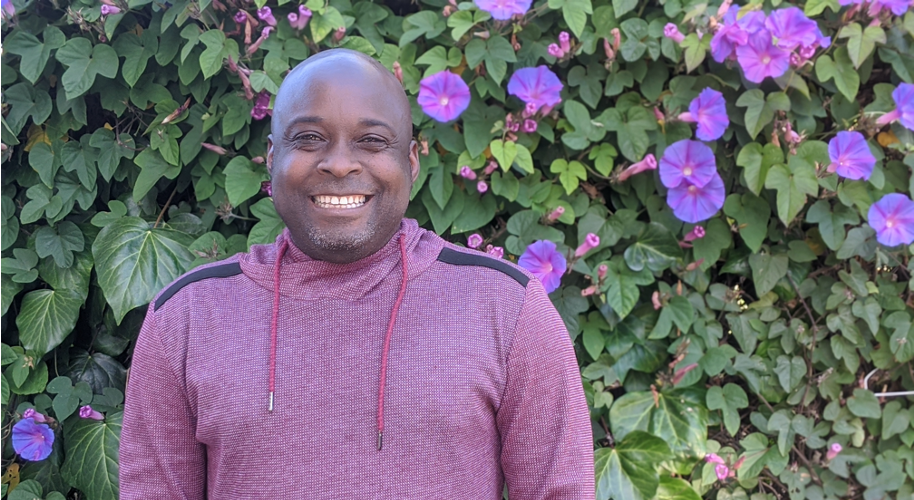
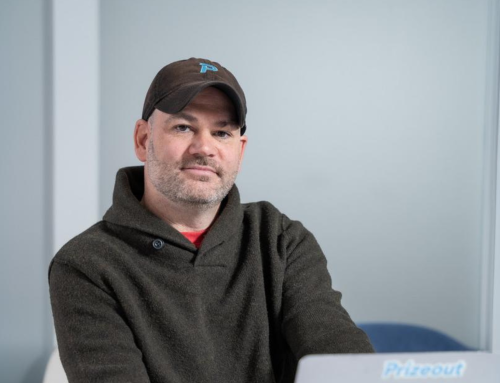
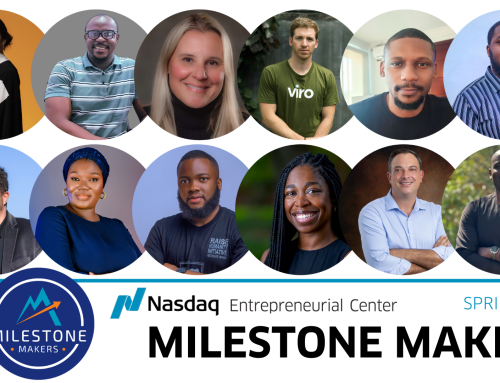
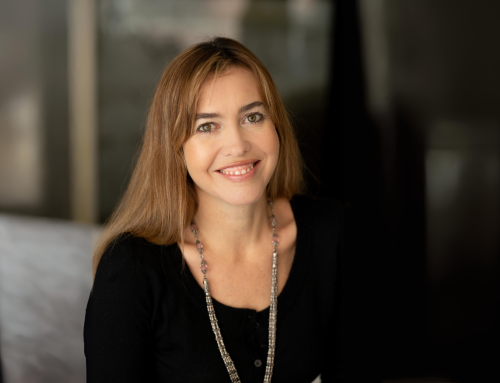
Invite a Friend
Close